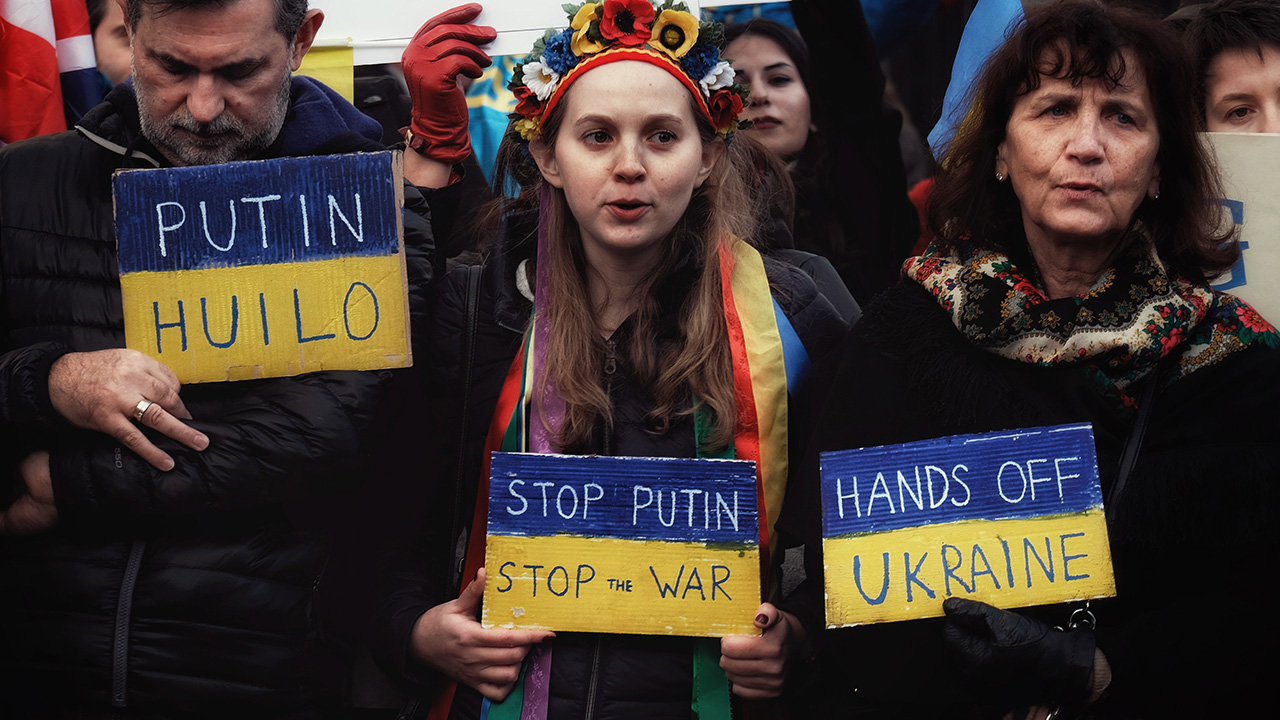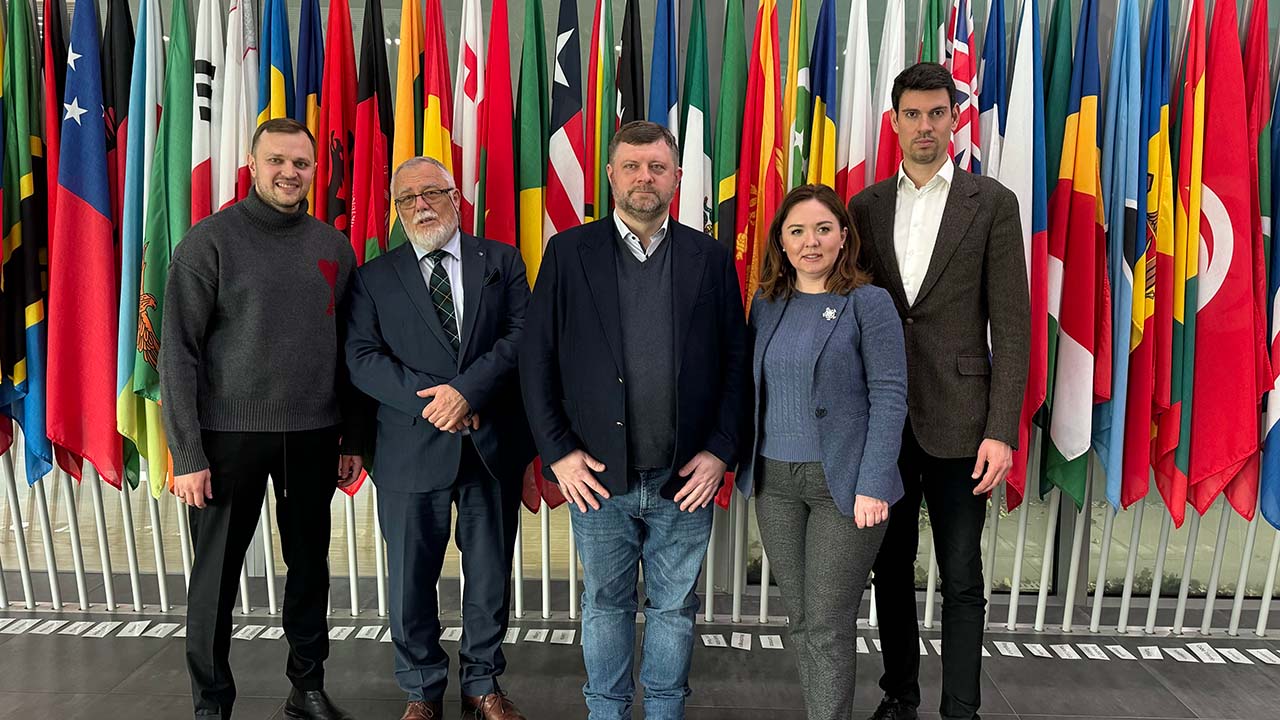
European Parliament, Brussels, 28 November 2013
The meeting began at 15 hs with the attendance of three EP members, Barbara Lochbihler, Chair of the Human Rights Committee, Helmut Scholz, leading the PGA group in the EP and Nikola Vuljanić, MEP form Croatia; eight staffers of other EP members, Professor Mohr, the Ambassador of Liechenstein in Brussels Mr. Kurt Jaeger, Judge Dr. Jur. h. c. Hans-Peter Kaul, the PGA Secretary General designate Dr. David Donat Cattin, PGA Program Officer Romina S. Morello and CICC Senior European Advocacy and Program Officer Virginie Amato.
The meeting started with the opening statement of Mr. Helmut Scholz in which he provided a definition of the crime of aggression listing its elements, namely, first the perpetrator must be a political or military leader, secondly, the Court must prove that the perpetrator was involved in the planning, preparation, initiation or execution of such a State act of aggression and thirdly, the crime of aggression must result in an act of aggression by a State against another State in line with UN General Assembly Resolution 3314 and it must, by its character, gravity and scale, constitute a manifest violation of the UN Charter.
Moreover, the MEP referred that the Court’s jurisdiction over the crime of aggression can only be activated in 2017 and that in order to achieve this Mr. Scholz then gave a broad picture of the status of ratification of the Kampala Amendments saying that only 12 countries, including 6 EU Member States, have ratified Kampala amendments, many others have publicly committed to ratify while there is concrete progress several other States Parties to the Rome Statutewhere government or parliament has been seized with the matter of ratification of the Kampala RC amendments (e.g. Croatia).
Mr. Scholz mentioned that since some very important and influential countries are not part of these lists of countries, there is still a lot of work to do in order to bring them to the group of the “early ratifiers”.
In order to do so, there are some arguments that may need to used and ‘set in motion’ to enable states to understand the importance of ratifying the crime of aggression amendments:goal at least 30 States Parties must have ratified the amendment as early as possible.
a) promote peace and rule of law, b) protect human rights and prevent human suffering, c) close a loophole in the Rome Statute in conformity with the Nuremberg Principles and customary international law, d) protect one own State against aggression from other States, e) strengthen the legitimacy of the entire Rome Statute system and maximise its impact on peace in compliance with the UN Charter.
To achieve such goals, Mr. Scholz underscored that PGA Members are committed to work with all political parties to ensure that States ratify the Kampala Amendments, with the desired goal of reaching 30 ratifications by the end of 2015, and by way of providing technical support to States to implement the CoA into their national legislations using the 100th anniversary of the beginning of World War I (August 2014) for a special event with focus on the necessity to end war and support the criminalisation of aggression by giving jurisdiction to the ICC through ratifications.
Later, the PGA Secretary General designate, Dr. David Donat Cattin, made an intervention that referred to the prevailing position in regional blocks regarding the Crime of Aggression. First, he mentioned that regionally there are some different approaches to the CoA: in Lain America, after the Parlatino Resolution of 19 October, 2013, the idea of being proactive and prevent any crime of aggression has gained significant ground. In the EU, notwithstanding the momentum generated by the German ratification of June 2013, which followed the unanimous votes by the Bundestag and Bundesrat, there is no common position on the Kampala Amendments. Even though all the EU countries are strongly engaged to protect the integrity of the Rome Statute system, there are still some important countries that do not support a unified EU approach regarding the Crime of Aggression because they have a different reading of the Kampala Amendments’s entry into force procedure.
PGA Members, however, have expressed support for the prompt ratification of the Kampala Amendments since they recognised the clear link between the human right to peace and the prohibition of the crime of aggression: PGA believes that, following the recent adoption of the Latin American Parliament resolution reaffirming this essential link, also other major human rights organisation can progressively integrate the Kampala Amendments in their respective mandates.
MEP Ms. Barbara Lochbihler intervened to comment on Mr. Scholz’s presentation: She mentioned that there are already three European Parliament’s Resolutions (2010, 2011 and 2012) that support the Kampala Amendments and there is an Annual Report of Human Rights that calls States to ratify the amendments and encourage Third States to proceed in this direction. Against this background, Ms. Lochbihler enlisted a number of possible follow-up initiatives:
since elections for the European Parliament are in May 2014, there is not time for issuing new reports: Therefore, it may be advisable to have a Plenary Recommendation supporting the ratification of the crime of aggression amendment (via collecting 40 signatures and making an oral question to the President of the Plenary).
European Parliament Resolution on the ICC with a call to ratify;
Amendments to the Human Rights action plan strategy of the EP with more references on the ratification necessity and support to the ICC http://www.europarl.europa.eu/webnp/webdav/site/myjahiasite/shared/ICMs/2013/AFET-DROI%2025%20Sept/131181.pdf
Get more support of the NGOs that are still not on board in this campaign.
Engage Italian and Greek Parliamentarians in this effort since they have the presidency of the European Council. (Greece: 1 January – 30 June 2014; Italy: 1 July - 31 December 2014).
Pre-Trial Division of the ICC Judge Hans-Peter Kaul, a leading international voice of the global movement for international justice, stressed that the message is simple, loud and clear: What is needed is more ratifications and, to accomplish this, more effort and more meetings are required to raise the global level attention on this priority-matter.
Judge Kaul stressed the necessity that as many EU States as possible ratify soon the crime of aggression amendments to the Rome Statute, adopted in Kampala in June 2010. To accomplish that, it would be highly desirable that the European Union incorporates in its common position on the International Criminal Court a strong call to ratify the Kampala amendments.
Also, Judge Kaul stressed that there is an obvious link between human rights and the aggressive use of force since the latter creates the condition (armed conflict) for the most serious violations of human rights and international humanitarian law, as humanity has experienced in WW I and WW II.
Moreover, Judge Kaul enlightened participants with insights regarding preparations within the International Criminal Court for its future jurisdiction on the crime of aggression. The Judge mentioned the following actions:
To familiarize the international community with the perspective that the Court will have, in the future, jurisdiction over the crime of aggression, the ICCC Presidency included the 3 new articles of the Kampala Amendments (8 bis, 15 bis, and 15 ter) in all official publications of the Rome Statute, anticipating that between 2010 and 2017 tens of thousands of copies would be distributed and, above all, viewed or downloaded from the Court’s website.
A study group at the Court is currently examining whether the existing procedural provisions in the Court’s instruments are adequate or whether, instead, new amendments are necessary so as to enable the organs of the ICC to deal with referrals of situations involving the crime of aggression. The identified procedural avenues and options will be presented to the Judges of the ICC for their further consideration.
Judge Kaul underscored that the text of the Amendments is a complete ‘package’ proposal that provides the judicial practitioner with a sound legal text to be interpreted because it is built on existing documents, as the definition of the crime is clearly aligned with the interpretation of the definition of “crimes against peace” established in the Charter and by the practise of the Nuremberg Military Tribunal. The Kampala Amendments’ wording allows judges who will apply it to be protected from the risk that this definition may be politicized. Moreover, it makes possible for the prosecutor and judges to exclusively focus on clear cases of aggression since it sets a threshold that need to be fulfilled (the act of aggression must “by its character, gravity and scale constitute a manifest violation of the Charter of the United Nations”).
In response to those sceptics who have mentioned that the ICC jurisdiction over the Crime of Aggression would overburden and politicize the Court and would be difficult for the judges to apply on concrete cases, Judge Kaul stated that the crime of genocide is also an extremely ‘political and complicated’ type of crime to deal with, but ICC Judges have already taken significant decisions on genocide.
After a debate that saw the participation of the European representative of the Coalition for the ICC (CICC) secretariat, Ms. Virgine Amato, Mr. Scholz outlined a road-map towards a plenary statement and Resolution in the EP, including via a letter to the chairs of the political groups.
In this regard, Professor Mohr asked if putting pressure in the governments to ratify the Amendments was really necessary since there are already several countries willing to ratify them. Judge Kaul replied to this observation and question stressing that the ratification efforts are well on track because there is a ratification campaign, and that if Lichtenstein would not have started the campaign maybe there would not been as many ratifications as there are now. Judge Kaul concluded that the world is full of problems and some countries are reluctant to ratify: For this reason it is necessary to put pressure on them since strengthening peace and security and protecting the human rights is a very good cause.
Afterwards, the Lichtenstein Ambassador to the EU, H.E. Mr. Kurt Jaeger, proposed to engage with countries at ministerial level, since there is already a ministerial network, it could be important that 5 or 6 ministers start the discussion about the Kampala Amendments’ ratifications to expand the geographical coverage by 2017.
Dr. Donat Cattin observed that, in some countries that are not yet Parties to the Rome Statute, knowledge and understanding of the Kampala Amendments on Aggression and War Crimes may help the cause of universality of the Statute itself, since these countriesmay have been affected by the external use of force, and the Kampala Amendments may give them a guarantee of non-repetition.
As a closure, Mr. Scholz stated that there is still a lot of work ahead, but there are actions that can and will be taken in order to provide the necessary support from the European Parliament for this CoA campaign.



